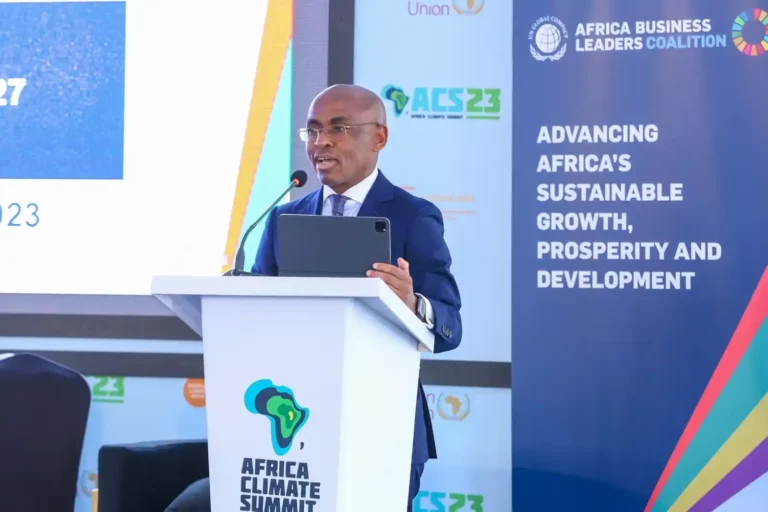Safaricom Plc has secured its first Sustainability Linked Loan (SLL) from a consortium of local banks, reinforcing its commitment to Environmental, Social, and Governance (ESG) initiatives.
The loan is valued at KES 15 billion and can potentially increase to KES 20 billion through an accordion mechanism.
This is the largest ESG-linked loan facility in East Africa and Safaricom’s first venture into such financing.
A sustainability-linked loan is where the interest rate is tied to the borrower’s sustainability performance, specifically tailored to their ESG targets. Meeting these targets leads to reduced interest payments.
Safaricom’s CEO, Peter Ndegwa, stated that this deal aligns Safaricom’s financial strategy with its sustainability agenda, reflecting its commitment to transforming lives by partnering for growth.
“In line with our focus to advance our sustainable business agenda, this funding will unlock our ability to create more diversified investments that will support transformative investments in new technologies, systems, and services that allow us to comprehensively manage our ESG footprint,” said Peter Ndegwa, CEO, Safaricom PLC.
The consortium providing the funding consists of four banks: Standard Chartered Bank, Stanbic Bank, ABSA Bank, and KCB Bank. This financing will enable Safaricom to access funds based on its progressive achievement of predetermined milestones across key ESG areas.
Kariuki Ngari, CEO of Standard Chartered Bank Kenya, expressed enthusiasm about this partnership with Safaricom as it positions Kenya as a regional leader in inclusive and responsible investment.
Standard Chartered Kenya played a pivotal role as the Global Coordinator, Sustainability Coordinator, and Mandated Lead Arranger for the deal.
Countries can tap into emerging sustainable finance opportunities as well as self-financing options to address sustainability issues. According to recent research from Standard Chartered, an increasing number of investors in growth regions are becoming more conscious of these issues.
Dr John Murton CMG, Senior Sustainability Advisor at Standard Chartered, said that climate change is already affecting everyone in Kenya at a personal level. However, “If Kenya can do the same for climate solutions through partnerships and creative approaches then its progress to net zero is assured.”
Kenya Commercial Bank acted as Mandated Lead Arranger, while Stanbic Bank Kenya and ABSA Bank Kenya served as Arrangers.




